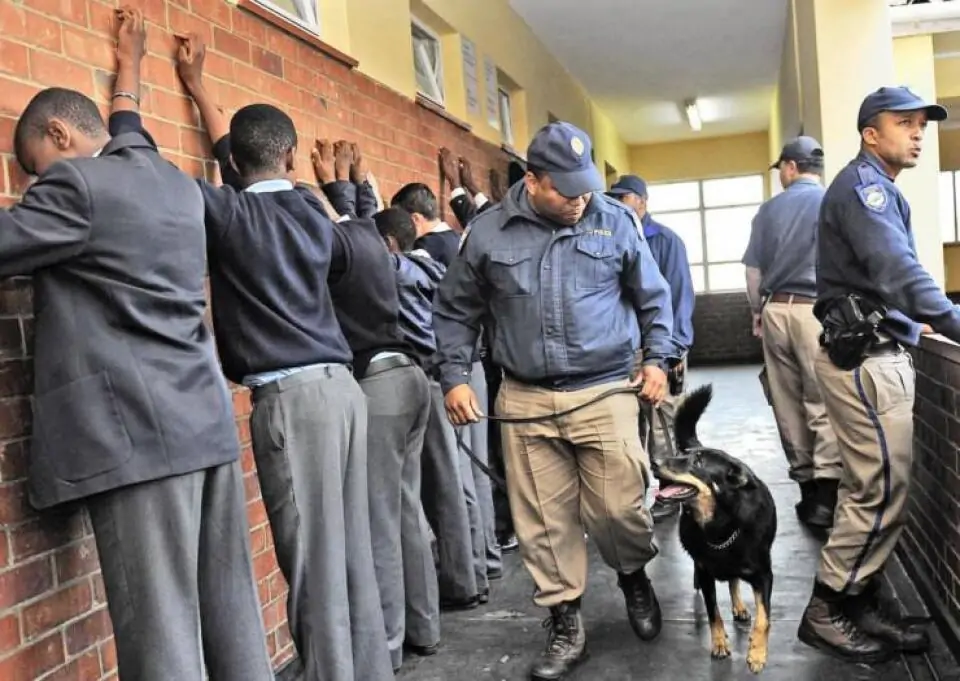
Violence within South African schools has surged dramatically, with numerous distressing incidents of student stabbings emerging across the nation. This alarming trend not only jeopardizes academic progress but also poses grave psychological ramifications for those involved. The urgency to address this critical issue within our educational institutions cannot be overstated.
South Africa’s educational landscape is marred by the specter of violence, a reality that undermines the fundamental purpose of schools as safe havens for learning and growth. The recent spate of student stabbings serves as a poignant reminder of the pressing need to confront this escalating crisis head-on.
The ramifications of such violence are profound and far-reaching. Beyond the immediate physical harm inflicted, there exists a profound disruption to the learning environment. Students, already grappling with the challenges of academic rigors, now contend with the added burden of fear and insecurity. The repercussions extend beyond the classroom, permeating the fabric of society and perpetuating a cycle of violence that undermines social cohesion and progress.
In light of these distressing developments, it becomes imperative to explore effective strategies for mitigating violence within our schools. Education specialist Thobo Khathola, in a recent discussion with eNCA, shed light on potential avenues for addressing this pressing issue.
Central to Khathola’s insights is the recognition of violence within schools as a multifaceted problem that demands a comprehensive approach. Merely addressing the symptoms without tackling underlying causes would yield limited results. Khathola emphasizes the need for a holistic strategy that encompasses various dimensions, ranging from policy interventions to grassroots initiatives.
At the policy level, there is a compelling need for stringent measures aimed at curbing violence within educational settings. This entails not only the enforcement of existing regulations but also the implementation of proactive measures geared towards prevention and early intervention. Collaborative efforts involving educational authorities, law enforcement agencies, and community stakeholders are crucial in this regard.
Equally significant is the imperative to foster a culture of inclusivity and respect within schools. Khathola underscores the importance of nurturing positive relationships among students and fostering a sense of belonging. By promoting empathy and understanding, schools can cultivate an environment where violence finds no fertile ground to thrive.
Furthermore, Khathola highlights the role of mental health support services in addressing the psychological toll inflicted by violence. Providing access to counseling and mental health resources is paramount in assisting students grappling with trauma and distress. Investing in the well-being of students not only promotes resilience but also contributes to the overall health of the school community.
In addition to systemic interventions, Khathola underscores the significance of community engagement in combating school violence. Empowering local communities to take ownership of the issue fosters a sense of collective responsibility and mobilizes resources towards sustainable solutions. Initiatives such as neighborhood watch programs and youth mentorship schemes can play a pivotal role in fostering a safe and nurturing environment for students.
As South Africa grapples with the scourge of violence within its educational institutions, the need for concerted action has never been more urgent. It is incumbent upon all stakeholders – from policymakers to educators to community leaders – to unite in a shared commitment to safeguarding the well-being of our youth. By fostering a culture of peace, empathy, and resilience, we can aspire towards a future where every child has the opportunity to learn and thrive in a safe and nurturing environment.
In conclusion, the escalation of violence in South African schools demands immediate and decisive action. Through collaborative efforts and a commitment to holistic solutions, we can stem the tide of violence and pave the way for a brighter future for generations to come. The time to act is now.
This website uses cookies.